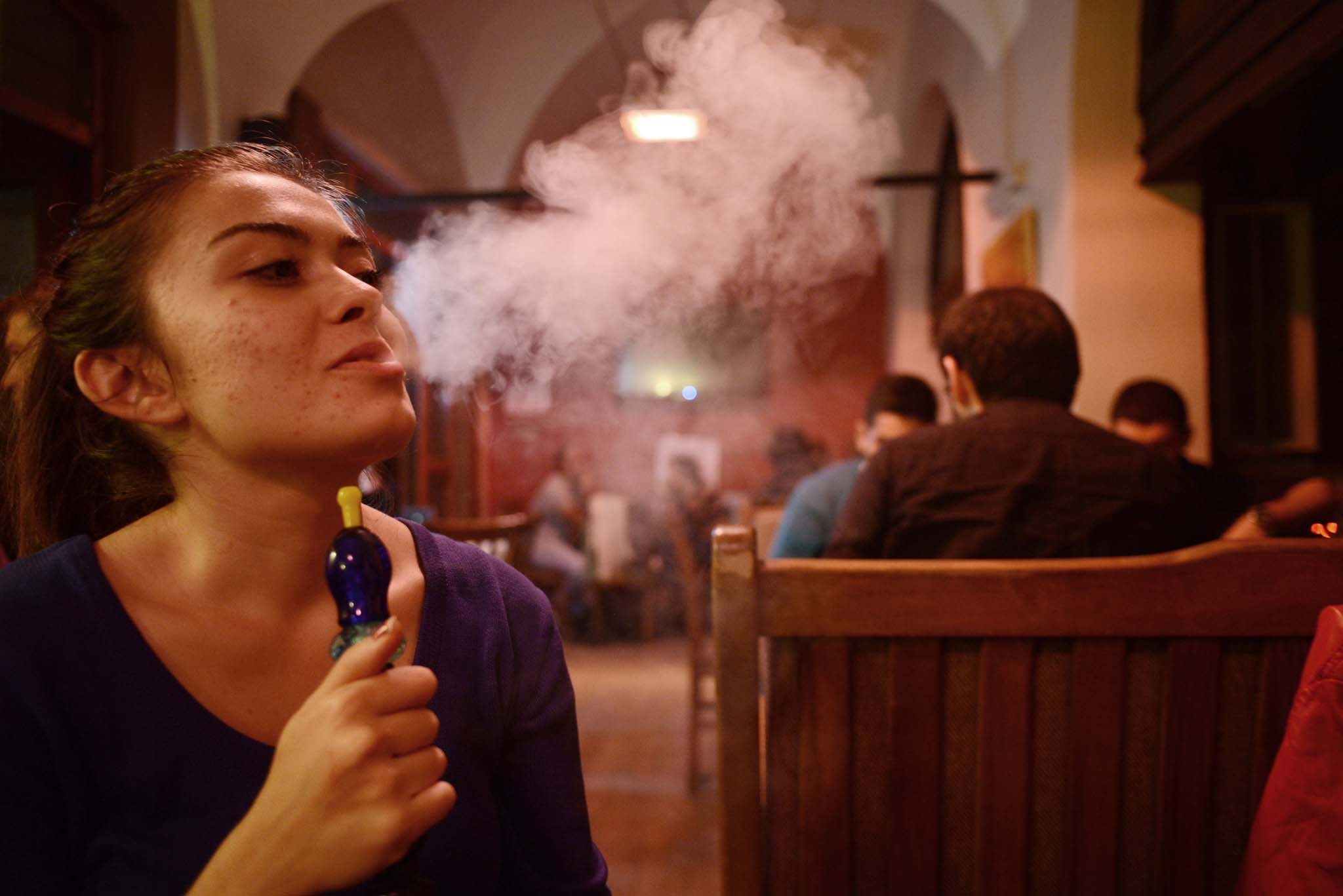
Citing health reasons, management at Katara Cultural Village has decided to ban shisha smoking in most places there, starting Jan. 1, 2015, a representative confirmed to Doha News.
The new rule, which was distributed in the form of a letter from management to businesses operating at Katara, means that all eateries currently serving shisha must not do so in public.
Once the ban takes effect, it appears that at least three restaurants at Katara will need to severely restrict their shisha services: Sukar Pasha Ottoman Lounge, Mamig and Khan Farouk Tarab Cafe.
Katara’s decision comes amid a push from doctors and authorities in Qatar and across the Gulf to reduce the public’s consumption of shisha, due to the severe health risks.
The effects of smoking shisha are still under study, but doctors here have said it could be 10 times worse than smoking cigarettes.
Elsewhere in Qatar
Earlier this year, Hamad Medical Corp. (HMC) held its first annual conference on waterpipe smoking research.
At the time, Tawfik A.M. Khoja, the director-general of the GCC Health Ministers’ executive board, said that a public ban on shisha could help reduce the social appeal of engaging in the activity:
“Users tend to smoke with friends in cafes and other public places,” he said. “There should be policies banning the use of shisha in public places, which may help prevent and reduce shisha smoking.”

But banning the popular past time in Qatar has been met with resistance.
Last year for example, restaurants and cafes at the popular Souq Waqif were told to stop serving the pipe indoors and to section their outdoor premises into smoking and non-smoking areas. Outlets that failed to do so were supposed to lose their shisha license for at least three months.
But the rule was quickly withdrawn by souq management, after managers of shisha-serving outlets complained that queues of people were waiting to smoke in the designated section while non-smoking tables remained empty.
Katara’s enforcement
At Katara, management at Armenian-Lebanese restaurant Mamig and Egyptian eatery Khan Farouk Tarab told Doha News that they are currently devising ways to obey the new rule, but still supply hookah to customers who ask for it.
A representative of Mamig, however, added that the restaurant’s owners are not that concerned about the new rule:
“We are famous for our excellent cuisine and customers come for our food as well as the option to have shisha.”
The restaurant already has an upper-floor and outside area dedicated to smokers only, away from all non-smoker customers.
Meanwhile, employees at Sukar Pasha Ottoman Lounge said the restaurant would observe the new rule by serving shisha in closed-off areas, away from the public eye.
This will apparently be done by using some 30 tents set-up outside the restaurant, facing the beachfront.

But to use one, customers would have to reserve a full tent at a cost. Renting a majilis is the cheapest option, at QR500. An open-roofed tent with a sea-view costs QR1,500 and a “closed” tent fit with air-conditioning, a television and sofas costs QR2,000.
Despite Sukar Pasha’s use of beach tents, an employee of the restaurant told Doha News that business may be affected by the public shisha smoking ban:
“We’re not happy with the ban as many of our customers come to us, especially for our custom-made shisha – particularly the Qataris. They then of course order food while enjoying their shisha. Not everybody wants to smoke in a tent and renting them out costs money. All we can do is see what happens.”
While Sukar Pasha insists its new system adheres to Katara management’s new rule, smoking indoors is illegal in Qatar.
However, enforcement of the law is lax, and many people can still regularly be seen smoking cigarettes and shisha inside malls, restaurants and cafes.
Meanwhile, for the past several months, authorities have said that a stricter, anti-smoking law is expected to be passed “soon.”
Will you be affected by the new smoking rules at Katara? Thoughts?







